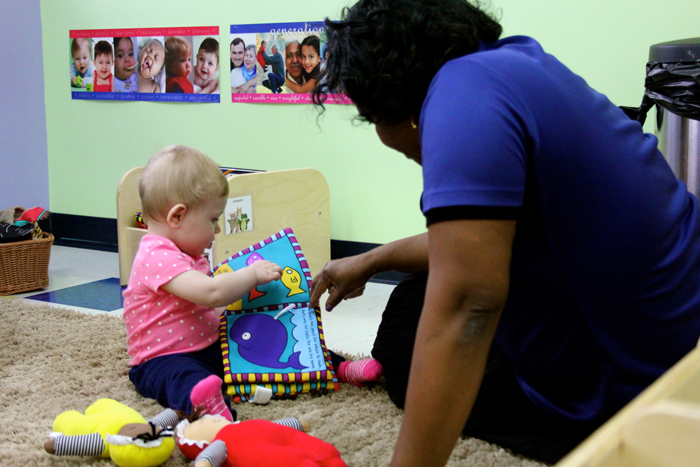 Scientists have made huge strides in understanding early childhood development, but until recently, researchers have been uncertain of just how responsive prenatal babies are. New developments in prenatal research show that babies in the womb can absorb more knowledge than previously thought possible, meaning that postnatal babies are capable of learning immediately after birth. Here, the child development and education specialists at Celebree Learning Centers describe the prenatal baby’s cognitive ability, and provide ways for parents and caretakers to begin facilitating their child’s development before and immediately after birth.
Scientists have made huge strides in understanding early childhood development, but until recently, researchers have been uncertain of just how responsive prenatal babies are. New developments in prenatal research show that babies in the womb can absorb more knowledge than previously thought possible, meaning that postnatal babies are capable of learning immediately after birth. Here, the child development and education specialists at Celebree Learning Centers describe the prenatal baby’s cognitive ability, and provide ways for parents and caretakers to begin facilitating their child’s development before and immediately after birth.
What Research Shows Us About Prenatal Learning
Prenatal research has shown us that the brain begins developing neurons—the cells of the brain that process and transport information—in-utero. This means that even before birth, a child’s brain is capable of processing and transporting information. Studies previously told us that a prenatal baby’s brain can analyze certain information, including their mother’s unique voice and speech patterns, as well as songs and stories repeatedly read to them in-utero. Additionally, recent research from Lancaster University in the United Kingdom suggests that prenatal babies can react to face-like images and shapes in the same way that newborns do. These studies have revolutionized the way society regards prenatal babies, revealing that instead of passively processing environmental information, prenatal babies can actively respond to it.
What Research Shows Us About Early Post-Birth Learning
Immediately after birth, newborns are soaking up information like a sponge, and the stage from zero to three years is an extremely critical one for cognitive development. Even as young as one month old, children are capable of repeating behaviors with the express purpose of seeking rewards and approval. This basic understanding of cause and effect also helps children to learn to trust their caretakers, which is one of the most vital lessons a child can learn at this stage of life–without a sense of trust, cognitive, emotional and behavioral development can be seriously and negatively impacted. By six months old, infants are capable of basing their actions on conscious decisions, and recognize that an object or individual they cannot see still exists. Even at this very young age, children’s understanding of the world around them is being molded in impactful ways.
How Parents and Caretakers Can Boost Pre- and Early Post-Birth Learning and Development
Parents and caretakers can maximize their children’s pre- and early post-birth development by creating a nurturing and stimulating environment that allows their baby to learn and grow. Before birth, pregnant mothers should be sure to consume a healthy, fruit-and-vegetable-rich diet, as a mother’s consumption of the nutrients found in fruits and vegetables positively correlates with her baby’s IQ. Prenatal babies also benefit from being read stories, sang songs or played music–once born, these same stories, songs and musical pieces will help to soothe them, and they will be able to recognize them when they are read, sang or played. Babies may also respond to touch in-utero, so rubbing your abdomen can be beneficial for your unborn child, and increase the mother-child bond.
Once born, create an environment for children that fosters learning. This can include simple toys, mobiles, music, stories and more. Talking to newborns not only helps them to recognize the voices of their caretakers, but also embeds the idea and form of language in their brain. While using a sing-song voice can help to hold a newborn’s attention, allow them to better differentiate the beginning and end of individual words and increase the amount of babbling they do, creating news words (such as “sippie” or “baba”) may not be as beneficial. Using a child’s name regularly allows them to become familiar with it as they get older, and pointing out objects and giving them their name can help newborns create a “learning foundation” that they rely on in the years to come.
How Celebree Helps Facilitate Learning from Birth
The child development and education specialists at Celebree Learning Centers understand just how important it is to set young children up for cognitive and academic success, which is why our curriculum is specifically tailored for each class based on the developmental milestones within the classes’ age group, and individually for infants up to 24 months. Our educators are specifically trained to work with each unique age group, including infants, and many hold degrees in child development and early childhood education. To learn more about the benefits our programs can provide to your children, contact us today!

